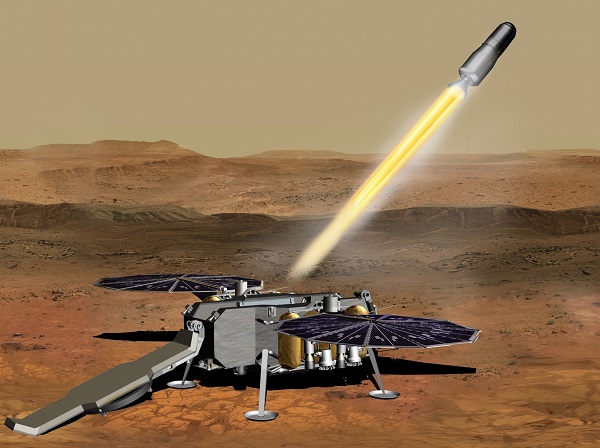
Washington, (Samajweekly) An independent review report has indicated that NASA is now ready to undertake its Mars Sample Return (MSR) campaign to bring pristine samples from the red planet to Earth for scientific study.
The US space agency established the MSR Independent Review Board to evaluate its early concepts for an international partnership with ESA (European Space Agency) to return the first samples from another planet.
Following an examination of the agency’s plan, the board’s report released on Tuesday said that NASA is prepared for the campaign, building on decades of scientific advancements and technical progress in Mars exploration.
“Mars Sample Return is something NASA needs to do as a leading member of the global community,” NASA Administrator Jim Bridenstine said in a statement.
“We know there are challenges ahead, but that’s why we look closely at these architectures. And that’s why in the end, we achieve the big accomplishments.”
The Mars Sample Return campaign will require three advanced space vehicles.
The first, NASA’s Mars 2020 Perseverance rover, is more than halfway to Mars following launch in July.
Aboard Perseverance is a sophisticated sampling system with a coring drill and sample tubes that are the cleanest hardware ever sent to space.
Once on Mars, Perseverance aims to cache rock and regolith samples in its collection tubes.
It then would leave some of them on the Martian surface for an ESA-provided “fetch” rover to collect and deliver to a NASA-provided Mars Ascent Vehicle, which then would launch the samples into orbit around Mars.
An ESA-provided Earth Return Orbiter would then rendezvous with the samples in orbit around Mars and take them in a highly secure containment capsule for return to Earth in the 2030s.
NASA initiated the MSR Independent Review Board in mid-August to ensure the long-awaited mission is positioned for success.
It is the earliest independent review of any NASA Science Mission Directorate large strategic mission.
Historically, such reviews have not occurred until much later in the programme development.









